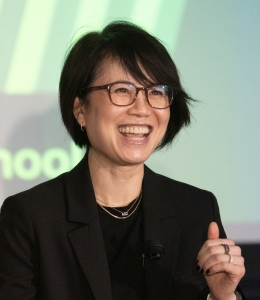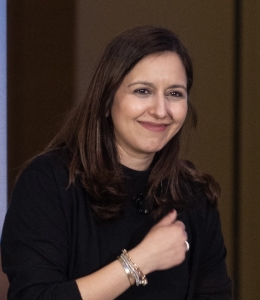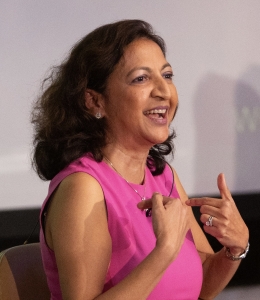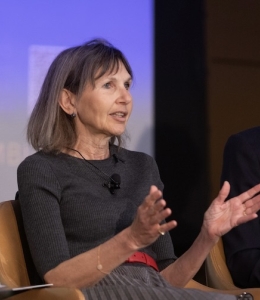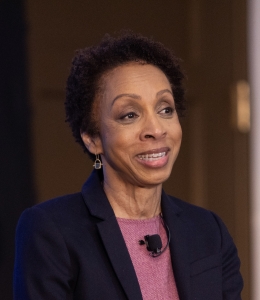Women of Columbia Law Has West Coast Premiere
The initiative hit the road for an event connecting alumni, current and admitted students, and friends on the West Coast.
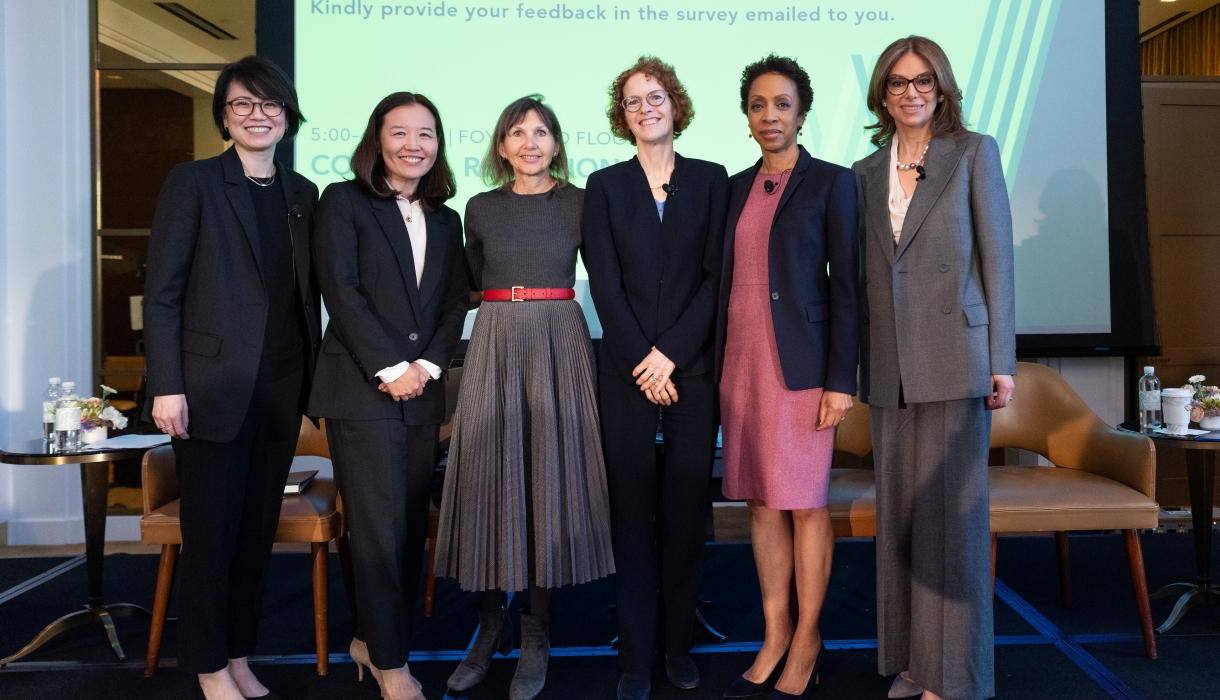
From left to right: Iris Chen ’01, Dorothy C. Kim ’98, Alison Ressler ’83, Dean Gillian Lester, Nina Shaw ’79, and Alia Tutor ’00
Expanding the reach of its mission to bring together an intergenerational community of Columbia Law alumnae to learn, network, and engage on topics of common interest, the Women of Columbia Law initiative—which debuted in October 2023 at an event held at Columbia’s Manhattanville Campus—headed to California. A March 12 event at the Waldorf Astoria Beverly Hills featured panel discussions on women influencing the entertainment and media industries along with purpose-driven leaders who are shaping the future of legal practice.
In her opening comments, Gillian Lester, Dean and Lucy G. Moses Professor of Law, said that women remain underrepresented in leadership in law firms, in the judiciary, and in academia. “We still have ground to cover,” she said. “We’re not done. One motivation of bringing together women of Columbia Law is so we don't forget about that.”
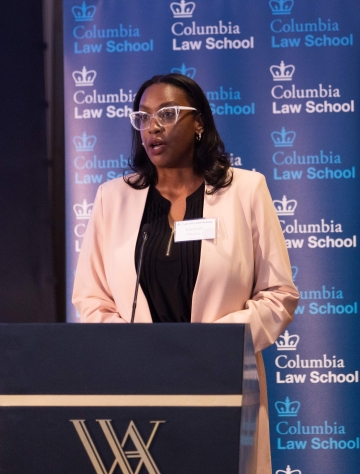
Kamilah Moore ’19, a reparatory justice scholar and an attorney with a specialization in entertainment and intellectual property law, welcomed participants to the event. She credited her experiences at Columbia Law School for preparing her for her work, particularly her service as chair of the California Reparations Task Force. “Columbia Law School was an ideal place for me, perfectly aligning with my interests and aspirations by providing comprehensive programs both on entertainment law and intellectual property, as well as civil and human rights,” she said. Moore earned a J.D. from Columbia Law and an LL.M. from the University of Amsterdam through a Columbia Law exchange program.
She said that her work on the task force “not only allowed me to contribute to significant societal change, but also to witness tangible steps toward justice and equity here in the state, and inspiring change nationwide as well.”
Future regional gatherings are currently being planned to bring the Women of Columbia Law initiative to additional areas of the country. “May it carry on and be a source of light in your lives, and friendship, and connection, and empowerment,” Dean Lester said.
Read more about each panel below:
“Law in Motion: Women Influencing Entertainment and Media”
Alumnae lawyers with top jobs in entertainment discussed changes to the media landscape, including the strikes of 2023, and offered advice on moving forward in a competitive field. Moderated by Sonya Mirbagheri Cheney ’07, vice president, global ethics and compliance counsel at Mattel, the panel included Saheli Datta ’90, executive vice president, chief compliance officer, and employment counsel at Universal Music Group; Ashleigh Landis ’11, vice president, legal, litigation at Warner Bros. Discovery; Suzanne Rosencrans ’90, chief operating officer and general counsel at Black Label Media; and Kelly Villamar ’10, senior vice president, legal affairs at CBS Studios, a division of CBS Studios Inc.
“Women of Columbia Law: Leading with Purpose, Shaping the Future”
Led by Dean Lester, the panel of leaders in tech, entertainment, the judiciary, and philanthropy discussed how to bring about change but do so in a way that is, as Dean Lester put it, “scaffolded by a set of underlying values.” The participants included Iris Chen ’01, vice president and deputy general counsel, product, commercial, marketing, and IP at Airbnb; Justice Dorothy C. Kim ’98 of the California Court of Appeal, Second Appellate District, Division Five; Alison Ressler ’83, partner at Sullivan & Cromwell; Nina Shaw BC ’76, LAW ’79, founding partner at Del Shaw Moonves Tanaka Finkelstein Lezcano Bobb & Dang; and Alia Tutor ’00, president of the Alia Tutor Family Foundation.
